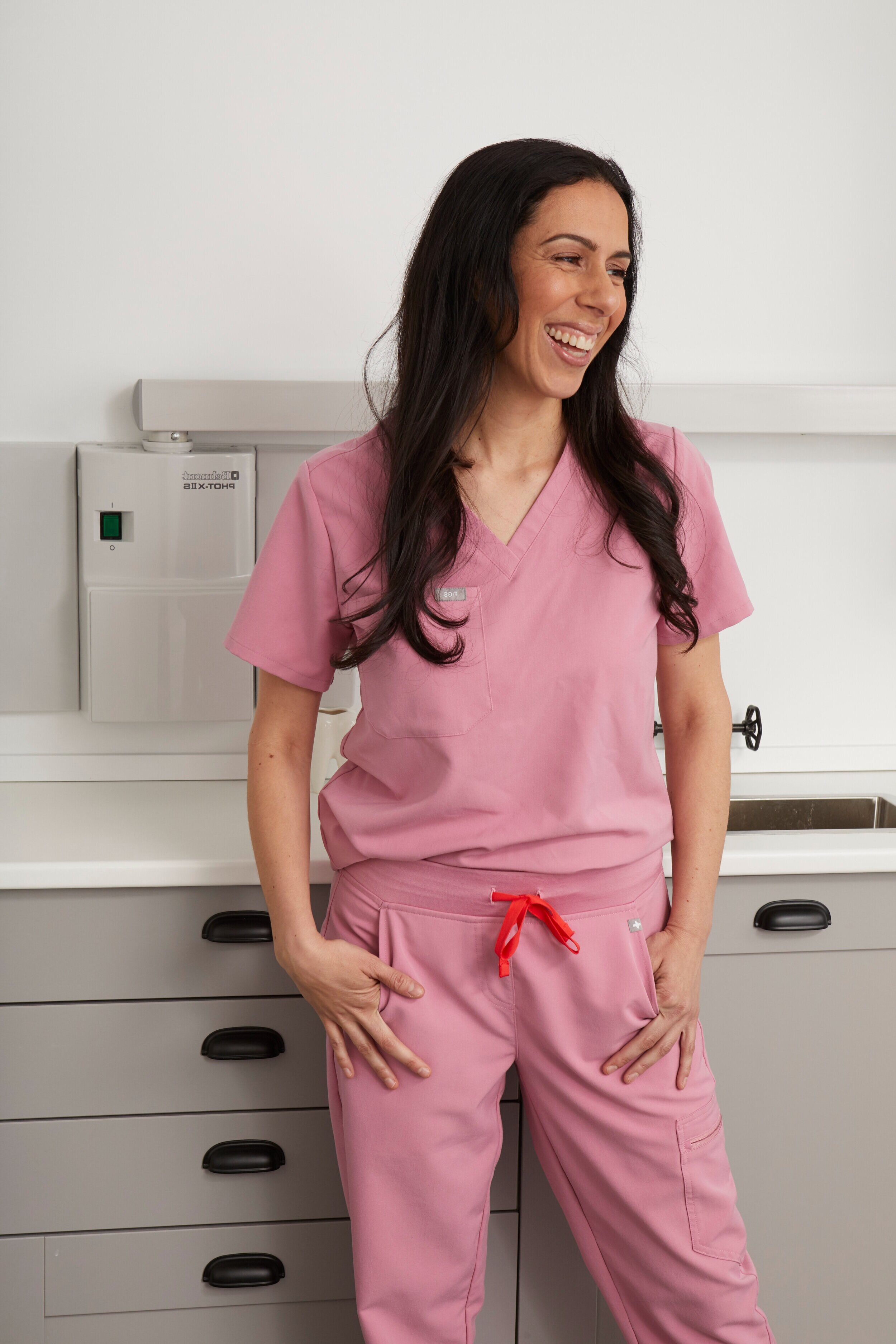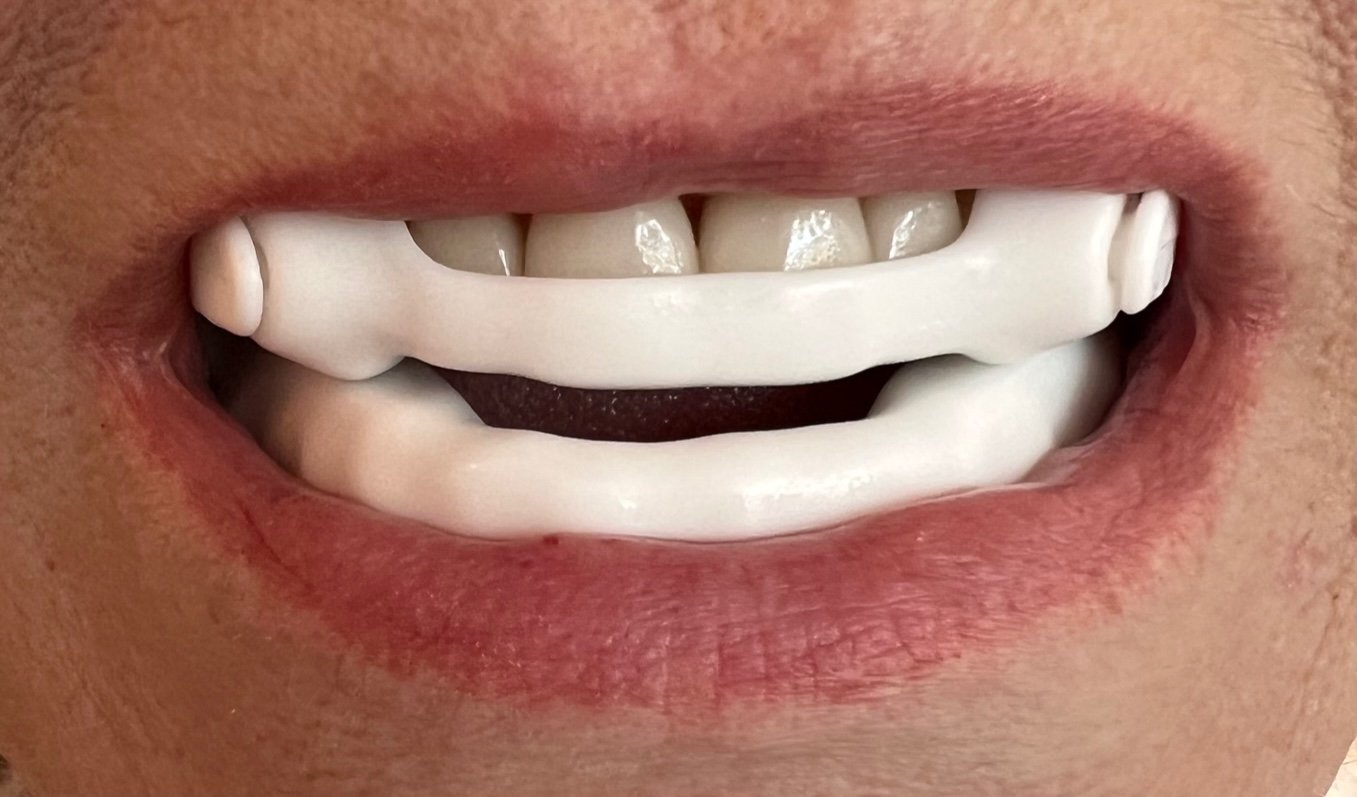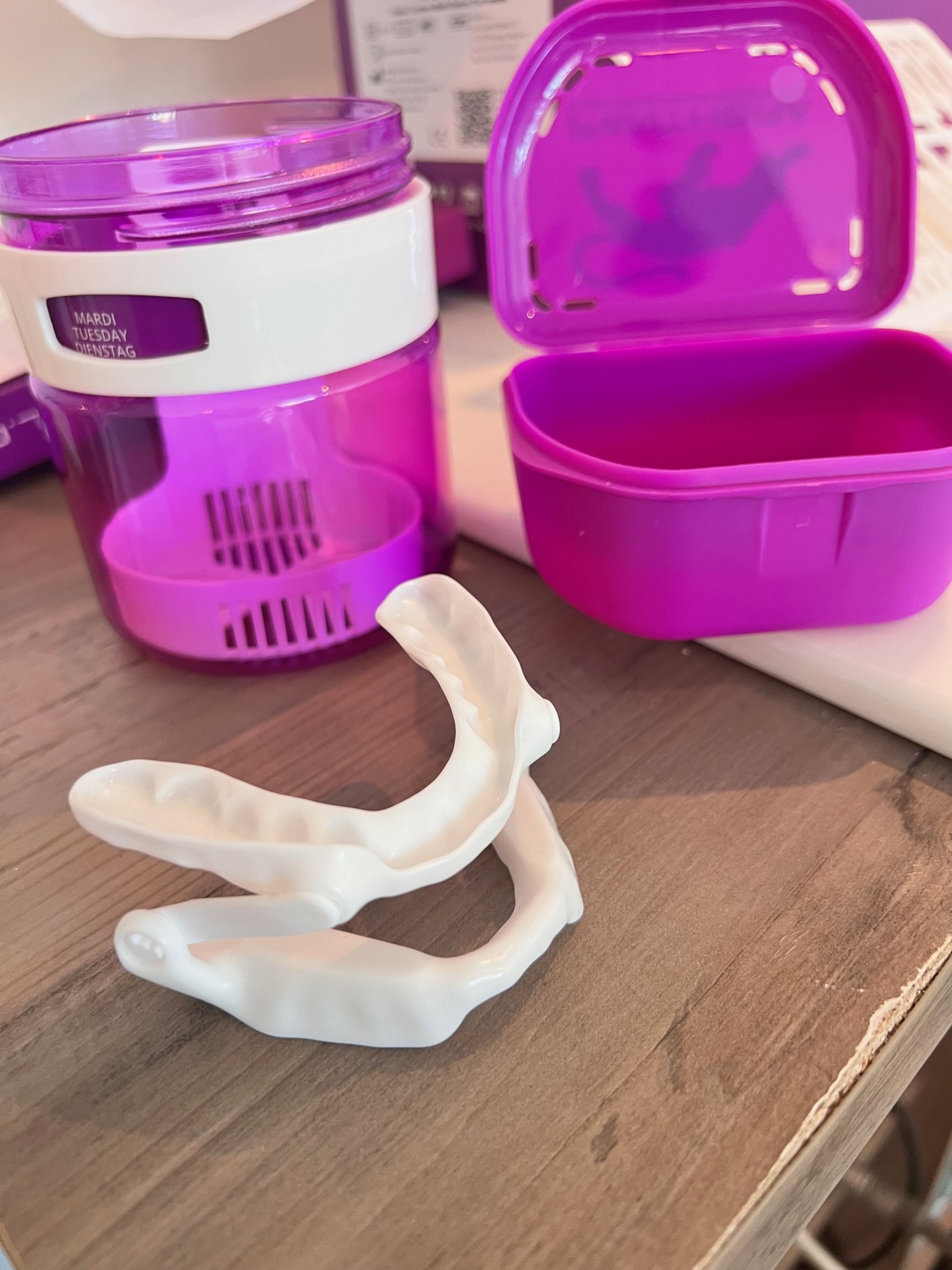
Sleep Apnea
Sleep apnea?
Sleep apnea is more than just snoring! Did you know that untreated apnea can shorten your life by several years?
About Sleep Apnea
Sleepiness, fatigue during the day, snoring, irritability, night sweats, difficulty concentrating, loss of libido, loss of memory, going to the bathroom during the night, clenching of the teeth...
These are all typical symptoms of sleep apnea, however, it is mainly characterized by a number of breathing stops lasting several seconds during the night. This is because people with sleep apnea have a relaxation of the throat muscles. The tongue, soft palate and pharynx collapse so that airflow is completely or partially blocked. This loosening prevents normal oxygenation of the blood and impairs cell regeneration.
This alteration can be the cause of certain cardiovascular diseases, diabetes, recurrent headaches, depression and psychosocial problems. Certain predispositions can increase the risk of suffering from sleep apnea such as neck and face morphology, age and sex, genetics, nasal obstruction and tobacco and alcohol consumption. The correlation between dental professionals and sleep apnea results from the associated tooth clenching.
Severe wear of tooth enamel is often observed in patients with sleep apnea. Night-guards, being the device of choice to prevent tooth wear, could create significant consequences on the number of respiratory arrests if sleep apnea is not previously treated.
The process
In order to diagnose sleep apnea, Dr. Katiya will refer you to a sleep clinic, an ENT specialist or a pulmonologist for a polysomnography. This test can be done at home or in a clinic, depending on the internal workings of the chosen clinic.
The objective is to record the number of events per hour of respiratory arrest. This number will determine the degree of severity of the sleep apnea and guide recommendations to remedy it.
Primarily, physicians will recommend continuous positive airway pressure (CPAP) therapy, however, early onset apnea can sometimes be treated in the dental clinic depending on the nature of the situation. A mandibular advancement device can be made to clear the airway and ensure airflow.



